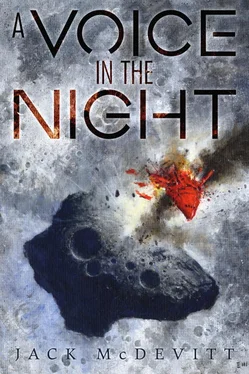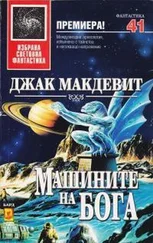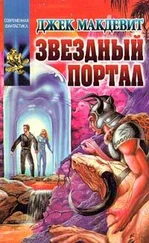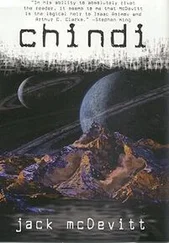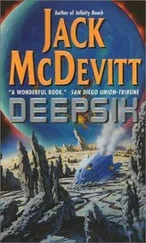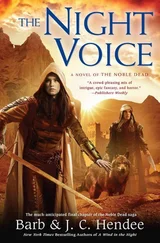Jake took over. “We are, too.”
“We hope there was no difficulty.”
“The people you talked to were lost in an accident. On the way home.”
“That saddens us. Please accept our—” It used an unfamiliar word.
“—Our condolences,” said Jake. “We would say ‘condolences’ in our language. Thank you.”
“We wish we could do more.”
“Are you perhaps still in the area? Is another meeting possible?”
“Unfortunately not at this time. We are long gone, and will probably not return in the near future.”
“I’m sorry to hear it.”
“We also have regrets. We waited as long as we could. But there were limitations.”
“I understand. Perhaps, one day we will meet again.”
“I’m sure we will. Meantime, know that you have new friends. Farewell.”
They waited a few moments. Hutch looked at the planetary images, at the clouds, at the oceans. Listened to the silence. “Do we want to take the satellite on board?”
“No.” He shook his head. “Leave it where it is. Take it home and they’ll just put it in the Smithsonian. This is where it belongs. Where, maybe, they’ll eventually hear our response.” He pointed at the control panel. “Meanwhile, Captain Hutchins, you have a report to file. And some deliveries to make.”
“Jake,” she said, “Simmons was wrong. He didn’t bomb. He went outside in the shuttle. That made all the difference.”
“I know.”
“I wish he’d known—”
THE PLAY’S THE THING

It had been twenty years since Dennis Colby and I patrolled the outfield for the Explorers. I’d hoped to move on to the Phillies, but you probably know how that turned out. Eventually I came back to LaSalle’s English Department, which is how I came to be sitting with the rest of the faculty in Rossi Hall when Dennis received the 2093 Holroyd Award for his work in computer technology, which had initiated advances across every scientific field.
He didn’t look any older when he ascended to the lectern. His hair was still black and he walked with that same easy stride. He smiled, surveyed the room, and said how glad he was to be home. “I owe everything to my folks,” he continued, pointing an index finger in their direction, the same gesture he used to make when I was coming to bat in a tight situation. “They were smart enough to send me to LaSalle.” I tried to catch his eye, but he didn’t seem to recognize me. Twenty years can do that to you. I looked nothing like the .300 hitter I’d once been.
“I’ll never forget this,” he said. “And I have an announcement of my own. Originally, I’d planned to do this a month ago.” He took what looked like a q-pod from a pocket and lifted it so we could all see it. “Ladies and gentlemen,” he said, “we’ve had a major breakthrough. This—,” he gazed at the pod, “—is the closest thing we’ve had yet to a bona fide artificial intelligence.” He lifted the lid. “Will, say hello to the audience.”
“Hello, everybody,” it said in a cheerful baritone. “It’s nice to be here.”
Dennis nodded. “Tell them who you are, Will.”
“I’m William Shakespeare,” he said. That brought a sprinkling of laughter and applause from across the dining area. “I understand,” he added, “that you have a superb theatrical group at LaSalle. The Masque, I believe?”
I waited until the crowd had dissipated before going over to say hello. His eyes widened when I identified myself. Then he managed a nervous smile. “Just kidding, Lou,” he said. “I could never forget you. You still playing ball?”
We walked outside into bright sunlight and talked about old times while we waited for his car to come in from the parking area. When it pulled up at the curb, I asked the big question: “Dennis, does it really impersonate Shakespeare? Or is it just another smart refrigerator?”
“It’s a lot more than that, Lou.” The door opened and he climbed in and put the trophy on the seat beside him. “I guess though that’s one way to put it.”
“But why Shakespeare? I’d have expected you to go for Einstein or Brachmann or somebody.”
“It’s hard to get at the inner reality of a physicist or a mathematician. But with Shakespeare, it’s all lying out there. Read him and you know exactly who the guy was.”
“Dennis, we’re not even sure that the plays were written by Shakespeare.”
He sat there, holding the door open. “Let me put it a different way.” He took the q-pod out of his pocket. “Will’s a reproduction of whoever wrote the plays.”
“Good.” Dennis was still the guy I remembered, a guy who knew how to enjoy a moment of glory. “Great. Congratulations.”
“Thanks, Lou. Maybe we could get together sometime for lunch.”
“I’d enjoy that.” I hesitated. Then: “Dennis, would you be willing to bring Will in to talk to my drama class?”
There were fourteen kids in the classroom two days later, and I had a few minutes with them before our guest arrived. Living in a smart house that tells you what time it is and prepares the meat loaf isn’t quite the same as saying hello to a pod that pretends to be William Shakespeare. “I don’t know how this is going to work,” I said, “but Dr. Colby is an old friend. If things go wrong, I’d like everyone to play it straight.” They all nodded. No problem. I suggested some questions they might ask, like whether Shakespeare had modeled Lady MacBeth after someone he’d known, or what he perceived to be Hamlet’s fatal flaw. A few of them were taking notes. Then Dennis arrived.
I introduced him, he said hello and the students applauded. “I assume,” he said, “that everybody knows what this is all about?”
“Oh, yes. They’re very excited.”
“Excellent.” He looked out across the class. “And I can imagine what you’re thinking. To tell you the truth I don’t blame anyone who’s skeptical. But Will is the next best thing to having Mr. Shakespeare actually here in the room. Ask him anything you like. Where he got the ideas for The Merry Wives of Windsor or Much Ado About Nothing or whatever.” He took the pod out of his pocket, opened it, and placed it on my desk, facing the students. “If I’d known a few days in advance that this was going to happen, I’d have added the visuals so you could have seen him, but I just don’t have that set up yet.” He looked down at the pod. “Will, you’re on.”
“Thank you, Professor Colby,” said Will. “Good morning, everyone. I’ve been looking forward to this. These last two days have been enjoyable. I’m finally out of the cocoon. Who has a question?”
There was a flurry of hands. “Elaine,” I said. Elaine, a member of The Masque, had starred in Friends and Lovers a few weeks earlier.
She got to her feet. “Hello, Mr. Shakespeare. You don’t seem to have written any musicals. Were there such things in your era?”
“‘Will’ is fine, Elaine. Let’s keep it informal. And yes. There was live music on stage all the way back to ancient Greece. And probably earlier than that. I never wrote a musical, but several of my shows have been adapted. West Side Story , for example, was based on Romeo and Juliet. And The Taming of the Shrew has become Kiss Me, Kate . There are others.”
Читать дальше
